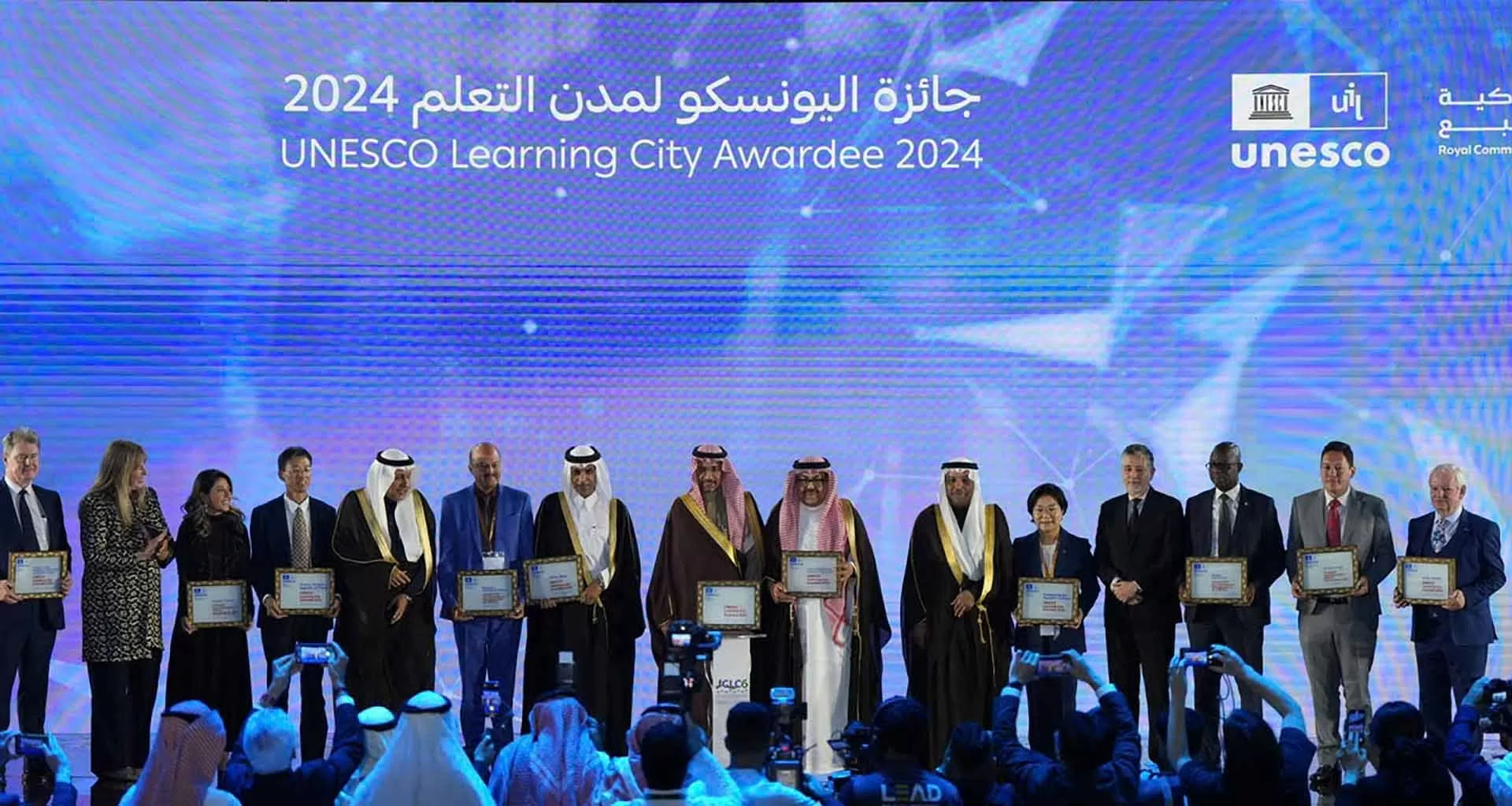
On Vietnam's journey to join UNESCO Global network of learning cities (Part 2): Inspiring stories from around the world
Latest
 |
| Representatives of global learning cities receiving UNESCO awards on December 2. |
On the evening of December 2, 2024, at the 6th international conference on learning cities, UNESCO proudly honored 10 cities with the prestigious global learning city award. These cities, hailing from Morocco, Côte d’Ivoire, Ireland, Ecuador, Qatar, Republic of Korea, the United Kingdom, Mexico, China, and Saudi Arabia, have exemplified excellence in advancing lifelong learning and sustainable development through innovative educational initiatives.
The UNESCO Global Learning City Award celebrates cities that transform education into a powerful engine for social cohesion, economic growth, and cultural enrichment. Presented biennially or triennially, this award acknowledges outstanding achievements in harnessing education to foster progress. Since its establishment in 2015, 58 cities across diverse continents and socioeconomic contexts have been recognized for their visionary contributions.
This article delves into the diversity and compelling narratives of these award-winning cities, offering valuable insights to guide Vietnam’s journey in creating resilient and inclusive learning city ecosystems.
A world of inspiring stories
The diversity in economic profiles and population sizes among UNESCO’s award-winning learning cities underscores the universal applicability of this model. Wealthy economic hubs such as Doha (Qatar) and Shanghai (China) stand as exemplars of how lifelong learning can be integrated into urban planning and industrial growth. With a GDP per capita exceeding USD 60,000 in 2023, Doha has strategically transitioned from a resource-based economy to a knowledge-driven one, investing in education to sustain its workforce and future-proof its industries. Similarly, Shanghai—a global financial powerhouse with a GDP per capita of USD 27,000—has embedded lifelong learning into its urban blueprint, fostering advancements in technology and financial services.
At the other end of the spectrum, cities like Bouaké (Côte d’Ivoire) and Mayo-Baléo (Cameroon) have embraced learning city models despite significant economic constraints. Bouaké, with a GDP per capita of just USD 2,000, has turned to education as a cornerstone for post-conflict recovery, fostering social healing and economic resilience. Mayo-Baléo, a rural community, prioritizes access to basic education as a means of addressing systemic inequalities. These examples highlight the transformative power of education, even in resource-scarce settings.
The diversity extends to population scales. Megacities such as Shanghai and Wuhan, China, host populations of over 29 million and 10 million, respectively, confronting the immense challenge of catering to the diverse educational needs of their urban residents. Meanwhile, smaller cities like Benguerir (Morocco), with a population of approximately 100,000, illustrate the potential of community-centered, locally tailored approaches. These varied scenarios demonstrate the versatility of the learning city framework, adaptable to both the complexities of metropolitan areas and the unique dynamics of smaller communities.
Lessons for Vietnam
UNESCO’s award-winning learning cities, despite stark disparities in population size (up to 290-fold) and GDP per capita (more than 30-fold), underline an essential truth: success hinges not on abundant resources or scale but on adaptability and the ability to harness local strengths.
Vietnam’s aspiration to build a network of learning cities - spanning major urban centers like Ho Chi Minh City to smaller cities such as Vinh, Sa Đéc, Cao Lãnh, and Sơn La - presents a unique opportunity to draw from these global experiences.
As Vietnam’s economic hub, Ho Chi Minh City can look to megacities like Shanghai, Doha, and Yanbu (Saudi Arabia) for strategies to integrate lifelong learning into urban planning. By aligning education with key industrial sectors, the city can cultivate a skilled workforce to drive innovation in high-tech and green energy, fueling sustainable development.
In contrast, mid-sized and smaller cities like Son La, Sa Dec, and Cao Lanh, where economies are rooted in agriculture and local commerce, can draw inspiration from cities like Bouaké and Benguerir. These examples highlight how community-driven approaches and strategic vocational training can catalyze economic transformation, even in contexts with limited resources.
Culturally, the rich ethnic diversity and heritage of cities like Son La and Cao Lanh parallel the experiences of Cuenca (Ecuador). Integrating indigenous knowledge with modern education not only preserves cultural identity but also strengthens social cohesion, laying the groundwork for sustainable growth.
Vietnamese cities preparing to join UNESCO’s global network of learning cities in 2025 have much to gain from these international examples. The stories of transformation - from thriving metropolises to rural communities and post-conflict cities - underscore a universal message: opportunities are accessible to all. UNESCO’s emphasis on diversity and equity shatters the myth that only affluent or developed cities can participate. This is a powerful call to action, encouraging cities of all sizes and circumstances to confidently embrace the vision of lifelong learning as a cornerstone of their future.













